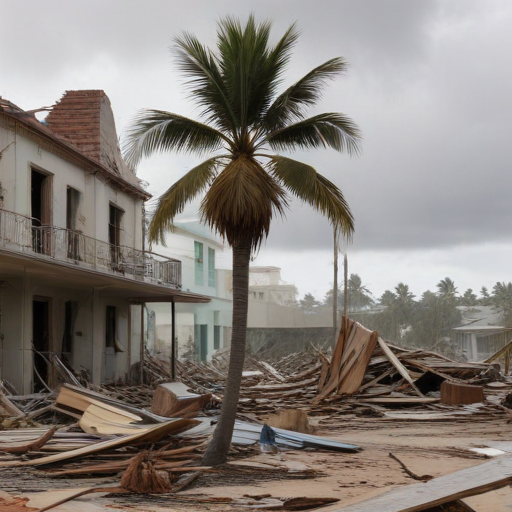Residents of Mayotte are facing devastating conditions after Cyclone Chido, which has been described as the worst storm to hit the island in nearly a century. The cyclone, with maximum wind speeds surpassing 225 km/h (140 mph), has obliterated structures in impoverished areas where many people lived in makeshift homes. One resident lamented the lack of water for three days, highlighting the dire needs of households whose members are struggling to find food and water.
In response to the tragedy, French President Emmanuel Macron announced plans to visit Mayotte soon, affirming his commitment to assist both the local residents and emergency responders. Currently, over 20 fatalities have been confirmed, but local officials fear that the number may surge into the hundreds or thousands. Rescue workers from France are actively searching through the wreckage, but the extensive damage to infrastructure, including downed power lines and impassable roads, complicates their efforts.
The situation is dire in many neighborhoods, with approximately 85% of the population still without power and significant communication issues affecting about 80% of phone services. While some areas are beginning to receive tap water, many reports suggest the water is unsafe for consumption. A midwife working at the central hospital expressed her concern over the water quality, stating it is “completely yellow” and unusable. The local healthcare system is being strained further, as it struggles to cope with the impact of the cyclone on top of existing vulnerabilities.
Historically, Mayotte, which became a French territory in the 19th century, has faced poverty, unemployment, and political strife—with nearly 75% of residents living below the national poverty line. The cyclone’s impact has particularly devastated vulnerable communities, amplifying their struggles. State officials warn that tracking the death toll may be challenging due to undeclared migrants among the population.
In solidarity with the affected region, humanitarian efforts are ramping up, with additional French military personnel being dispatched to support recovery and rescue operations. The French Red Cross has faced challenges in accessing local volunteers and fully grasping the situation on the ground, leading to concerns about potential escalations in humanitarian needs as conditions unfold.
Meanwhile, Cyclone Chido also affected parts of Mozambique, causing flash floods and damage in coastal areas. With the potential for further downpours in the coming days, the region remains on high alert. Experts indicate that cyclones of such intensity may be influenced by climate change—leading to stronger storms even if the frequency of hurricanes remains unchanged.
In the aftermath of this calamity, hope lies in the resilience of the affected communities and the commitment of humanitarian agencies and the government to mobilize resources rapidly. With ongoing relief efforts, there is an opportunity for recovery and rebuilding once the situation stabilizes.
Overall, while the immediate circumstances are heartbreaking, they offer a reminder of the strength that can emerge in the face of adversity, as communities come together to support one another and rebuild their lives.
